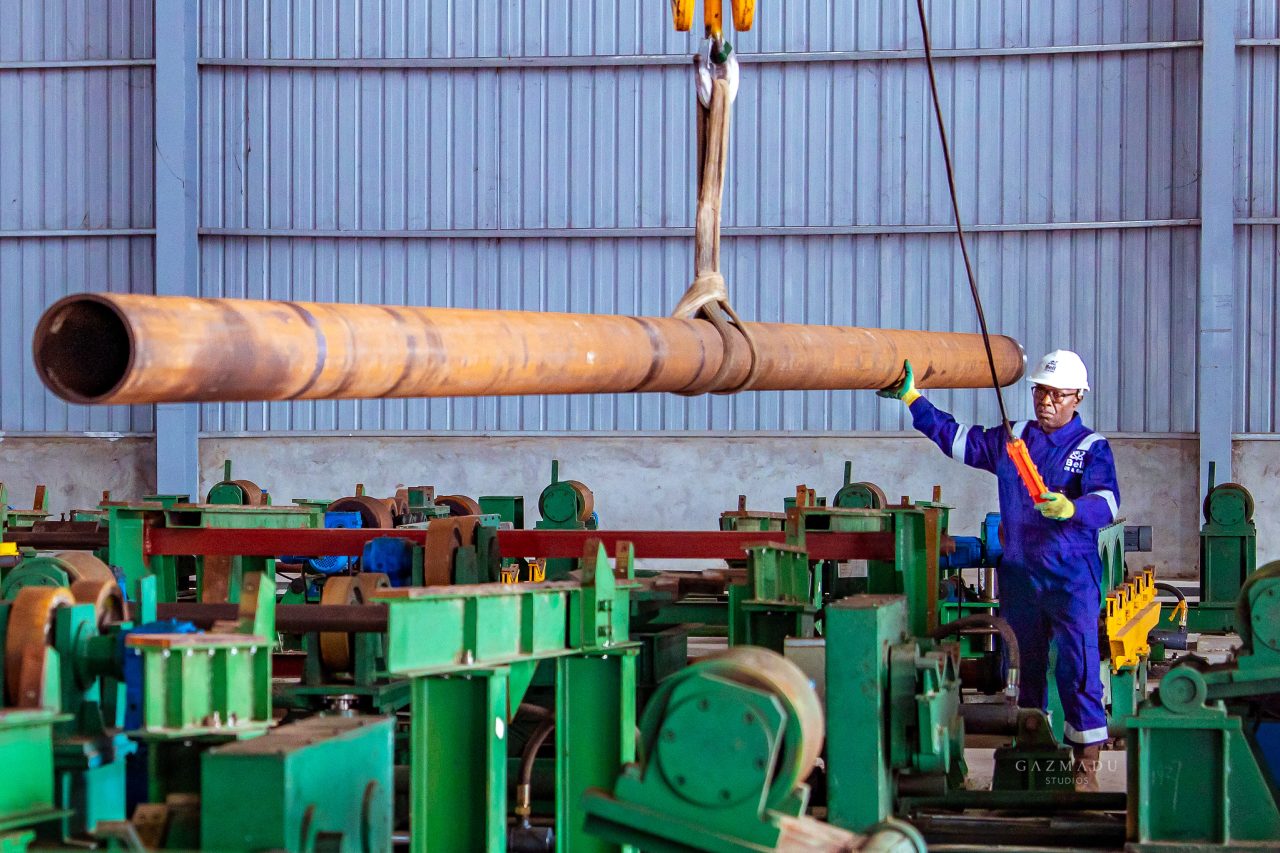
In industries where transporting fluids like oil, gas or water over long distances is at the core of their operation, selecting the right piping system is essential. The efficiency, safety, and cost-effectiveness of these systems depend heavily on the materials and design of the pipes used. Among the most widely used components in these sectors is the line pipe; a type of steel pipe engineered to meet the demanding requirements of these industries.
What is a Line Pipe?
A line pipe is a specialized steel pipe designed for transporting liquids, gases, and occasionally solids over long distances. These pipes are typically crafted from carbon steel or alloy steel and are engineered to endure high pressure, corrosive environments, and extreme temperatures. Their robust construction makes them indispensable in the oil and gas industry, where the safe and efficient transportation of resources is paramount.
Line pipes are used in pipelines that connect production facilities to refineries, processing plants, or distribution networks. As the backbone of energy infrastructure, they ensure raw materials like oil and natural gas reach their destinations safely and efficiently.
Types of Pipes Used in the Oil and Gas Industry
Selecting the appropriate pipe for a specific project depends on various factors, including the type of fluid being transported, environmental conditions, and operational pressures. Below are some common types of pipes used in the oil and gas sector:
1. Stainless Steel Pipes
Stainless steel pipes are renowned for their high corrosion resistance, making them ideal for transporting fluids in corrosive environments, such as saltwater or acidic conditions. Their strength and durability allow them to withstand high pressures, making them suitable for offshore drilling, refineries, and other critical applications.
2. Carbon Steel Pipes
Carbon steel pipes are the workhorses of the oil and gas industry. Known for their strength, durability, and versatility, these pipes are commonly used in long-distance hydrocarbon transportation. To extend their lifespan, they are often coated or treated to resist corrosion, particularly in moisture-laden or extreme temperature environments.
3. Nickel Alloy Pipes
Nickel alloy pipes are essential in high-stress environments, such as deep-sea drilling and high-temperature chemical processing. Their ability to resist extreme temperatures and corrosion makes them invaluable for specialized applications where other materials might fail.
4. PVC and HDPE Pipes
While primarily used in low-pressure applications like water transport and irrigation, PVC and HDPE pipes offer advantages such as lightweight construction and chemical resistance. However, these materials are generally unsuitable for the high-pressure and high-temperature demands of upstream and midstream oil and gas operations.
5. Specialized Pipes (Fiberglass, Copper, PVDF, and Galvanized Pipes)
Fiberglass pipes are corrosion-resistant and lightweight, ideal for chemical processing and offshore environments.
Copper pipes, though less common, are used in specific refining processes due to their antimicrobial properties.
PVDF pipes are high-performance plastics used in high-purity or chemical transport applications.
Coated with zinc to prevent rust, Galvanized pipes are used in certain environments requiring corrosion resistance but are less prevalent in large-scale oil and gas projects.
Key Considerations for Line Pipe Selection
Professionals in the oil, gas, and water industries must consider several factors when choosing line pipes:
- Pressure and Temperature: Pipes must withstand the operational pressure and temperature of the fluid being transported.
- Corrosion Resistance: Depending on the environment, pipes may need coatings or materials that resist corrosive elements like saltwater or acidic gases.
- Cost-Effectiveness: Balancing upfront costs with long-term durability and maintenance requirements is crucial for optimizing budgets.
- Environmental Regulations: Adhering to safety and environmental standards ensures compliance and minimizes risks.
BOG is committed to supporting the energy industry with high-quality piping solutions, including line pipe, drill pipes and collars, tubing and casings, accessories and flanges. With expertise in supplying components for oilfield operations and a focus on quality and safety, we ensure that your projects are equipped with reliable and efficient materials.
From selecting the right line pipe to providing advanced solutions for fluid transportation, we are your trusted partner in building a safe and sustainable energy future.
Contact at enquiries@belloil.com











